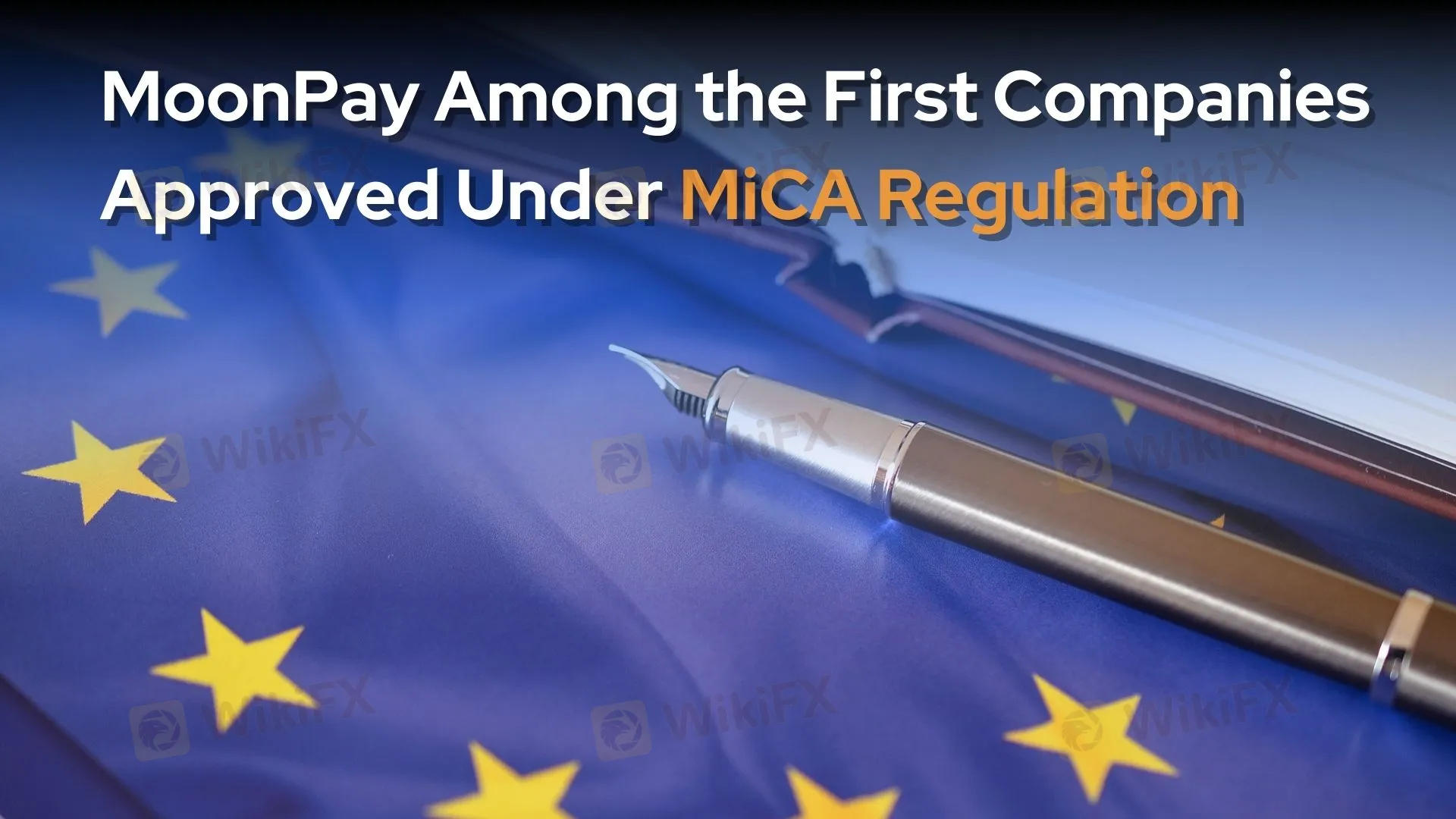MoonPay Among the First Companies Approved Under MiCA Regulation
Abstract:MoonPay receives MiCA license in the Netherlands, enabling EU operations under stricter regulations.

In a December 30 announcement, MoonPay stated that the Netherlands Authority for the Financial Markets (AFM) had issued it a license under the EUs Markets in Crypto-Assets Regulation (MiCA), allowing the cryptocurrency company to operate as a licensed crypto business in the Netherlands.
MoonPay is a fintech company that builds payment infrastructure for cryptocurrency. Its range of inbound and outbound products provides seamless conversion between fiat and crypto using all major payment methods, including debit and credit cards, local bank transfers, Apple Pay, Google Pay, and Samsung Pay. According to its introduction, MoonPay serves over 20 million users across 180 countries, supporting 121 tokens.
What is MiCA?
MiCA (Markets in Crypto-Assets Regulation) is the EUs first comprehensive regulation designed to govern the crypto-assets market. It aims to foster cryptocurrency innovation, provide a regulatory framework to mitigate risks associated with digital assets, and ensure financial stability. MiCA requires crypto service providers to obtain authorization and registration from financial authorities in EU member states.
How MiCA Impacts the Crypto Market
MiCA introduces a unified regulatory framework for crypto businesses, reducing policy uncertainties. It offers clear guidelines for market standardization while imposing stricter requirements on individual investors and crypto companies.
For individual investors, MiCA creates a safer market environment by requiring issuers to disclose comprehensive whitepapers and financial information. This transparency allows investors to better understand project risks and make more informed decisions. Patrick Hansen, European Policy Lead at Circle, noted, “MiCA creates a more transparent and credible market environment, attracting more mainstream investment.”
For businesses, MiCAs “EU passport mechanism” is a key highlight. Through this mechanism, companies need only obtain a MiCA license in one member state to legally operate across the entire EU economic area, significantly simplifying cross-border compliance complexities.
However, MiCA also imposes stringent compliance requirements, including establishing a legal entity, meeting minimum capital requirements, and implementing Anti-Money Laundering (AML) and Know Your Customer (KYC) procedures. These obligations may increase operational costs, posing challenges particularly for startups and small to medium-sized enterprises.
Read more

What Are The Top 5 Cryptocurrency Predictions For 2025?
Discover the top 5 cryptocurrency predictions for 2025, including Ethereum's rise, a potential bear market, meme coin struggles, and regulatory shifts.

Stablecoins: The New Frontier in Digital Finance?
In 2024, while Bitcoin’s surge past US$100,000 captured global attention, financial institutions turned their focus to stablecoins. Will stablecoins be the new frontier in digital finance for the year of 2025?

Top 9 Financial Fraud Cases in Recent History
Know the top 9 financial fraud cases in history, from Enron to FTX, uncovering deception and greed. Learn how WikiFX protects investors from scams and fraud.

KuCoin Pay Introduces Easy Crypto Payments for Merchants
How KuCoin Pay, an innovative PoS system enabling merchants to accept 54 cryptocurrencies, including Bitcoin, Ethereum, and USDT, for seamless transactions.
WikiFX Broker
Latest News
Will Gold Break $2,625 Amid Fed Caution and Geopolitical Risks?
ECB Targets 2% Inflation as Medium-Term Goal
New Year, New Surge: Will Oil Prices Keep Rising?
PH SEC Issues Crypto Guidelines for Crypto-Asset Service Providers
FTX Chapter 11 Restructuring Plan Activated: $16 Billion to Be Distributed
Think Before You Click: Malaysian Loses RM240,000 to Investment Scam
Bithumb CEO Jailed and Fined Over Bribery Scheme in Token Listing Process
WikiFX Review: Something You Need to Know About Saxo
Is PGM Broker Reliable? Full Review
Terraform Labs Co-founder Do Kwon Extradited to the U.S. to Face Fraud Charges
Rate Calc
